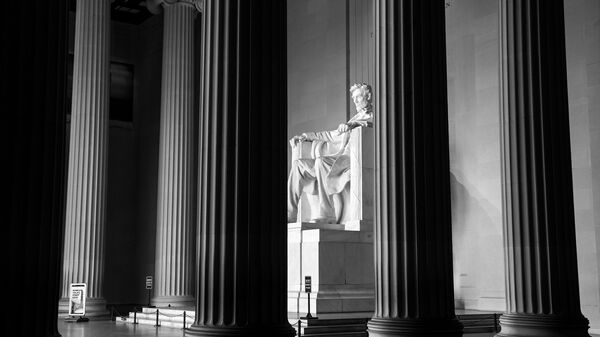Prior to that we also have the possibility of a further round of talks being held in Astana, Kazakhstan, which as with earlier talks held in the Kazakh capital on the Syrian conflict, will be hosted by Russia.
From the previous round of talks held in Astana in January and February, and the subsequent talks that have just ended in Geneva, the issue of transition is the main impediment to progress.
UN Special Envoy for Syria Staffan de Mistura met with the Syrian opposition's HNC, as part of UN-led negotiations https://t.co/9kZpBYFvTi pic.twitter.com/Okv8a26PJS
— Ruptly (@Ruptly) March 1, 2017
Hitherto the Damascus government's negotiating team, led by Syria's Permanent Representative to the UN, Bashar al-Jaafari, has refused point blank to countenance any transition that does not involve the current President Bashar al-Assad. Meanwhile representatives of the Syrian opposition have consistently refused to accept any deal that does not involve an end to Assad's presidency as a pre-condition of resolving the conflict.
According to a recent article, published by Reuters on the progress of the Geneva talks, Russia had been receptive on the question of political transition as conceived by the opposition.
Given that Russia produced a draft constitution at the first round of the Astana talks in January, involving Russia, Iran, Turkey, the Syrian government and representatives of the Syrian opposition, which enshrined democratic elections and fixed presidential terms, there is a certain verisimilitude about the opposition's claims in Geneva when it comes to Russia being receptive to the need for transition in the country.
Given the course of the conflict on the ground, where pro-government forces are currently in the ascendancy, and given what the country and its people have suffered, along with inordinate sacrifice of the Syrian Arab Army at huge loss, it is understandable that any resolution that involves Assad stepping down as President is viewed as tantamount to surrender by his supporters, the army, and those who view Assad as a symbol of Syria's secular, multicultural and multi-religious character and identity.
The opposition, meanwhile, firmly believes that Assad is the primary cause of the conflict and destruction of the country, and therefore has to step down.
The point is that despite the inordinate efforts that have and are being made to find a diplomatic solution, the prospects of success at this stage continue to appear bleak. The reality on the ground is that the opposition cannot be considered part of the solution rather than the problem, until terrorism is completely eradicated from every town, city, and village in Syria. Moreover, there is incontrovertible evidence that the so-called moderate opposition has been fighting in tandem with various Salafist-jihadi groups responsible for this terrorism.
With this in mind, what government worth its salt could possibly accept representatives of these groups having any meaningful say in Syria's future? Just how committed are they to a secular, pluralist Syria anyway?
With the forces ranged against the government in Syria dominated by those that are intent on establishing a seventh century Wahhabi caliphate across the country, what influence do the groups represented in Geneva really have on the ground?
An historical comparison worth considering when it comes to the total war that describes the conflict in Syria is the US Civil War, fought between the short-lived US Confederacy forces and the US Federal Government between 1861 and 1865.
Abraham Lincoln was the US president during the Civil War and was considered a dictator and a tyrant by his enemies and opponents. Such a vicious rendering of a man considered by many to be the greatest American president there's ever been was justified on the basis of the harsh methods he employed in waging war against those who were intent on maintaining four million Africans as slaves and breaking the country up.
Upon Lincoln's assassination in April 1965, a Texas newspaper asserted:
"The world is happily rid of a monster that disgraced the form of humanity."
Another editor who blamed Lincoln for the war described him as a "worse tyrant and more inhuman butcher than has existed since the days of Nero."
Reading such headlines, it is hard to deny a parallel between the way Abraham Lincoln was regarded by his enemies in his day and the depiction of Syrian President Bashar al-Assad that is common among his enemies and opponents in our time.
The war in Syria is no ordinary conflict. The stakes involved in the outcome are of historical importance, just as the stakes involved in the US Civil War were of historical importance. Lincoln understood this, which is why he unleashed total war on the US Confederacy in order to ensure total peace. As he said:
"There's nothing good in war, except its ending."
Lincoln's idea of ending the Civil War was the unconditional surrender of those engaged in an attempt to destroy the Union in the cause of white supremacy and slavery.
The Syrian opposition should take note that there are many Syrians today who would wholeheartedly agree with this approach.
The views expressed in this article are solely those of the author and do not necessarily reflect the official position of Sputnik.






